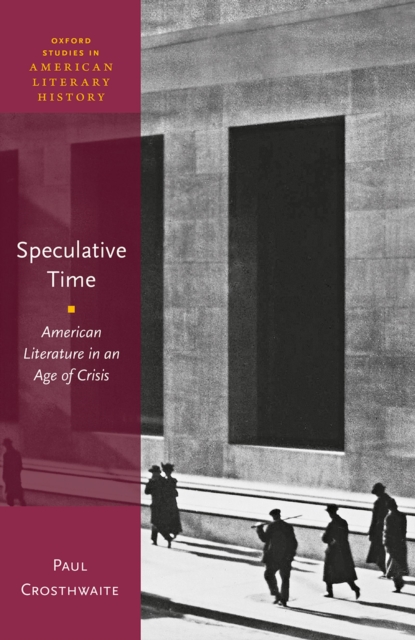
Speculative Time : American Literature in an Age of Crisis EPUB
by Paul Crosthwaite
Part of the Oxford Studies in American Literary History series
EPUB
Description
Speculative Time: American Literature in an Age of Crisis examines how a climate of financial and economic speculation and disaster shaped the literary culture of the United States in the early to mid-twentieth century.
It argues that speculation's risk-laden and crisis-prone temporalities had major impacts on writing in the period, as well as on important aspects of visual representation.
The conceptions of time-and especially futurity-arising from thetheory and practice of speculation provided crucial models for writers' and other artists' aesthetic, intellectual, and political concerns and strategies.
The attractions and dangers of speculation were most spectacularly apparent in the period's pivotal economic event: the Wall Street Crash of 1929.
The bookoffers an innovative account of how the speculative boom and bust of the "Roaring Twenties" affected literary and cultural production in the United States.
It situates the stock market gyrations of the 1920s and 1930s within a wider culture of speculation that was profoundly shaped by, but extended well beyond, the brokerages and trading floors of Wall Street.
The early to mid-twentieth century was a “speculative time,” an age characterized by leaps of economic, political,intellectual, and literary speculation; and the notion of speculative time provides a means of understanding the period's characteristic temporal modes and textures, as evident in work by figures including F.
Scott Fitzgerald, John Dos Passos, Nathan Asch, William Faulkner, Federico García Lorca, James N.
Rosenberg,Margaret Bourke-White, Archibald MacLeish, Christina Stead, Claude McKay, Richard Wright, and Ralph Ellison.
Information
-
Download - Immediately Available
- Format:EPUB
- Pages:336 pages
- Publisher:OUP Oxford
- Publication Date:29/02/2024
- Category:
- ISBN:9780198891819
Information
-
Download - Immediately Available
- Format:EPUB
- Pages:336 pages
- Publisher:OUP Oxford
- Publication Date:29/02/2024
- Category:
- ISBN:9780198891819










